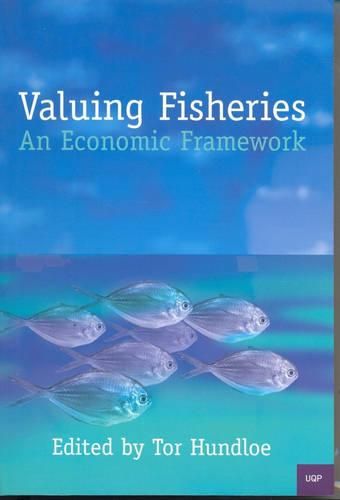Readings Newsletter
Become a Readings Member to make your shopping experience even easier.
Sign in or sign up for free!
You’re not far away from qualifying for FREE standard shipping within Australia
You’ve qualified for FREE standard shipping within Australia
The cart is loading…






Humans have been fishing for food and pleasure since time immemorial. Long before the development of powerful commercial fishing vessels, tribal communities sought fish and other marine life for food and ceremonial purposes. Today, there is a significant tourism sector around diving and snorkelling. Commercial and recreational fisheries often compete for the same fish stock. Together these two groups compete with those who wish to promote a ‘look but don’t take’ attitude to fish. And in some cases, traditional indigenous fishers have special demands that can be inconsistent with the needs of other groups. This book sets out in clear language, with simple examples, the correct economic method to be used. The aim is to improve decision-making so that everyone can enjoy a seafood meal, drop a line in the water or observe fish in a natural environment without unnecessary conflict.
$9.00 standard shipping within Australia
FREE standard shipping within Australia for orders over $100.00
Express & International shipping calculated at checkout
Humans have been fishing for food and pleasure since time immemorial. Long before the development of powerful commercial fishing vessels, tribal communities sought fish and other marine life for food and ceremonial purposes. Today, there is a significant tourism sector around diving and snorkelling. Commercial and recreational fisheries often compete for the same fish stock. Together these two groups compete with those who wish to promote a ‘look but don’t take’ attitude to fish. And in some cases, traditional indigenous fishers have special demands that can be inconsistent with the needs of other groups. This book sets out in clear language, with simple examples, the correct economic method to be used. The aim is to improve decision-making so that everyone can enjoy a seafood meal, drop a line in the water or observe fish in a natural environment without unnecessary conflict.